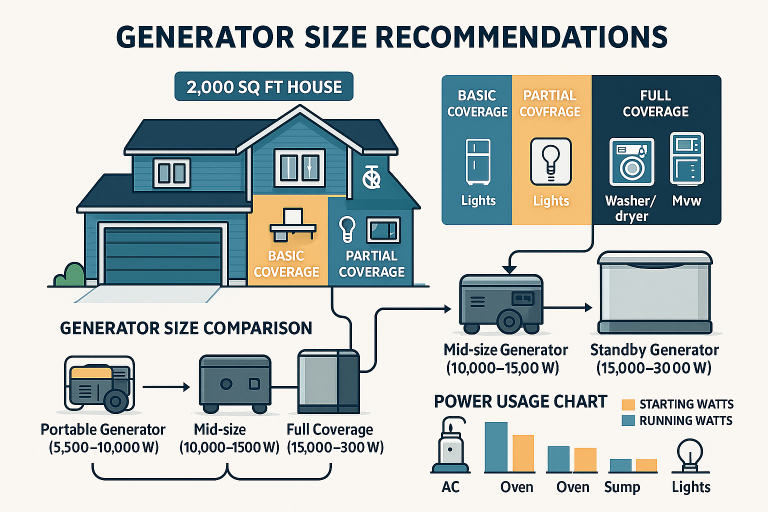Operating Power Generators in the Rain: Safety and Precautions
Power generators can be an essential tool in a variety of situations, providing a reliable source of electricity during outages or serving as a portable power supply for outdoor events and construction sites. However, when it comes to operating generators in the rain, it is important to take certain precautions to ensure the safety of both the operator and the equipment.
Can Power Generators Be Operated in the Rain?
In general, power generators can be operated in the rain as long as certain precautions are taken. Most modern generators are built with weather-resistant features, such as a coated exterior and sealed components, to protect against rain and other weather conditions. However, it is still important to provide additional protection for the generator, especially in heavy rain or storms.
How to Protect a Generator in the Rain
There are several measures you can take to protect a generator from the rain:
- Use a canopy or shelter: A canopy or shelter can provide protection from rain and other elements, while also allowing air circulation to prevent overheating.
- Cover the generator: If a canopy or shelter is not available, you can use a weather-resistant cover to protect the generator. Make sure the cover fits snugly and is secured in place to prevent it from blowing off.
- Keep the generator dry: Avoid placing the generator on wet ground or in standing water. If the generator becomes wet, dry it off with a clean, dry cloth before operating it.
- Secure electrical connections: Make sure all electrical connections are secure and free of moisture. If any connections are damaged or exposed, do not operate the generator until they have been repaired or replaced.
- Follow manufacturer’s instructions: It is important to follow the manufacturer’s instructions for operating the generator in the rain. These instructions may include additional precautions or recommendations for protecting the generator.
Safety Precautions for Operating a Generator in the Rain
In addition to protecting the generator itself, it is important to follow proper safety precautions when operating a generator in the rain:
- Wear appropriate clothing: Wear waterproof clothing and footwear to protect yourself from the rain. Avoid wearing metal jewelry or other items that could conduct electricity.
- Use ground fault protection: If the generator is not equipped with built-in ground fault protection, use a ground fault circuit interrupter (GFCI) to protect against electrical shocks.
- Keep a safe distance: Keep a safe distance from the generator to avoid coming into contact with live electrical components.
- Avoid standing water: Do not operate the generator in standing water or near any other sources of water. If the generator falls into water, turn it off immediately and unplug it before attempting to remove it.
- Follow proper shutdown procedures: When shutting down the generator, make sure to follow the manufacturer’s instructions for proper shutdown procedures. This will help prevent damage to the generator and ensure that it is ready to be used again when needed.
Conclusion
Power generators can generally be operated in the rain, but it is important to take certain precautions to protect the generator and ensure the safety of the operator. By using a canopy or shelter, covering the generator, keeping it dry, and securing electrical connections, you can help protect the generator from the elements. Additionally, following proper safety precautions, such as wearing appropriate clothing, using ground fault protection, and avoiding standing water, can help prevent accidents and injuries. If you have any concerns about operating a generator in the rain, it is best to consult the manufacturer or a qualified electrician.

